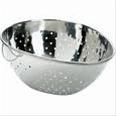
It May Be Easier Than You Think says Suzanne Dixon, MPH, MS, RD
One of the single most important things people can do to stave off declining brain function is to exercise.
Nobody wants to look or feel old. We certainly don’t want to think old. From forgetting your keys to struggling to recall an acquaintance’s name, many people worry about their memory, and over time those worries increase. But addressing your memory lapses is easier than you think. Smart lifestyle choices can help keep your brain and memory in tip-top shape.
Train your brain through exercise
One of the single most important things people can do to stave off declining brain function is to exercise. According to health experts at the Stanford Center for Longevity, regular aerobic exercise has been shown to improve attention, reasoning, and components of memory.
Aim for a minimum of four to five moderately intense, 20- to-30 minute, aerobic exercise sessions per week. What’s “moderately intense?” Brisk walking counts. You should be breathing hard enough so that carrying on a conversation takes a little effort. If you’re gasping for breath, back off the pace. If walking isn’t your thing, try:
A quick game of hoops
Playing tag with your kids
A bike ride with the family
A swim at the gym
A session on cardio equipment, such as an elliptical machine or stair stepper
Remember: always check with your doctor before starting a new exercise plan.
Feed your brain properly
The same foods that contribute to clogged arteries around your heart (cardiovascular disease), also contribute to clogged arteries around your brain (known as cerebrovascular disease). The nutrients found in healthy foods can protect the brain against everyday wear and tear too. Put your money where your mouth is and add foods that feed your brain to your family meals.
Be supplement savvy
As people age, they may not absorb vitamins and minerals as well as they should.
On B vitamins, in particular, people often come up short. Folate and vitamin B12 deficiencies can contribute to poor brain function.
The herb ginkgo may have benefit for some people. A recent study cast doubt on ginkgo’s benefits, but many herbal medicine experts point out that numerous previous studies do show a brain boost from ginkgo.
Finally, consider acetyl-L-carnitine, a nutrient that can help the body process energy from food into energy for cells in the body. About 25% of our daily calorie intake goes toward keeping the brain humming. Efficient use of energy is an important part of keeping the noggin healthy.
Read more about Age-Related Cognitive Decline
Copyright © 2010 Aisle7. All rights reserved. www.Aisle7.net